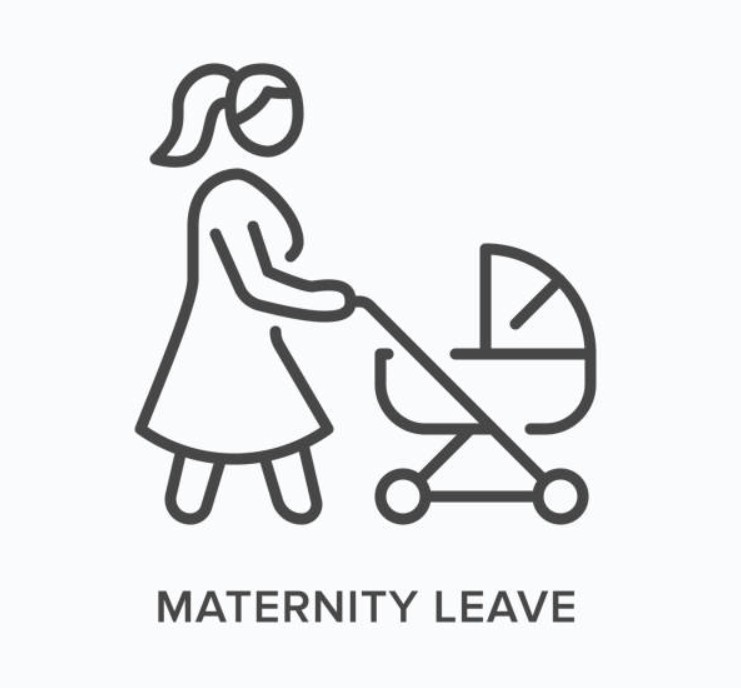When discussing maternity pay in the UK, most people only consider Statutory Maternity Pay (SMP), the statutory minimum provided to eligible employees. However, many companies offer additional financial support known as Occupational Maternity Pay (OMP). This additional pay can make a significant difference during maternity leave, yet many employees are unaware of their potential entitlement.
In this detailed guide, we’ll answer key questions that people in the UK are searching for when trying to understand Occupational Maternity Pay, including how it works, who is eligible, and why it’s important.
What is Occupational Maternity Pay?
Occupational Maternity Pay (OMP) is maternity pay that is offered by an employer, separate from and often in addition to the government’s Statutory Maternity Pay (SMP). Unlike SMP, which is the legal minimum required by the UK government, OMP is part of your employer’s benefits package and is provided at their discretion.
In simple terms, Occupational Maternity Pay is an enhanced maternity benefit. It gives you more than what you would receive through SMP alone. The structure of OMP varies between companies. Some offer full pay for several months, others may offer partial pay for a set period, and some may not offer any OMP at all.
OMP is often part of a wider package of family-friendly policies designed to attract and retain staff. Employers that offer Occupational Maternity Pay are usually investing in the well-being of their workforce and supporting employees during an important life event.
How Does Occupational Maternity Pay Work in the UK?

In the UK, the way Occupational Maternity Pay works depends entirely on the employer. There is no set national structure or legal requirement for how OMP should be provided. Instead, each company decides:
- Whether to offer OMP.
- How much will be paid?
- How long will the payments last?
- What conditions apply to receiving it?
For example, one company might offer:
- Full pay for the first 8 weeks of maternity leave.
- Half pay for the following 16 weeks.
- A requirement that the employee return to work for at least 3 months after maternity leave to keep the benefit.
Another company might offer no additional pay beyond the basic SMP. Larger companies, public sector organisations, and employers with strong employee support policies are more likely to offer generous Occupational Maternity Pay packages.
It’s important to note that some employers may ask for part of the OMP to be repaid if you decide not to return to work after your maternity leave.
What is the Difference Between Occupational Maternity Pay and Statutory Maternity Pay?
Understanding the difference between Occupational Maternity Pay and Statutory Maternity Pay is essential.
| Feature | Statutory Maternity Pay (SMP) | Occupational Maternity Pay (OMP) |
|---|---|---|
| Legal Requirement | Yes | No |
| Provided By | Government via the employer | Employer directly |
| Payment Structure | 6 weeks at 90% of average earnings, then £184.03 per week (2025 rate) for up to 33 weeks | Depends on employer policy; may offer full or partial pay for a longer period |
| Universal Availability | Must be provided if eligibility is met | Not guaranteed; varies by employer |
| Repayment Requirement | No | Sometimes required if the employee does not return to work |
Statutory Maternity Pay is the minimum legal entitlement in the UK and is the same for all eligible employees. Occupational Maternity Pay is an optional benefit that is company-specific and may offer significantly better financial support.
It is also worth noting that SMP is subject to specific government-set rules on eligibility and payments, while OMP is entirely at the employer’s discretion.
Who is Eligible for Occupational Maternity Pay?
The eligibility for Occupational Maternity Pay depends on your employer’s maternity policy. Unlike SMP, there are no national eligibility rules for OMP.
Typically, employers set the following conditions for OMP:
- You must have been employed with the company for a minimum period, often at least 26 weeks by the 15th week before your baby is due.
- You must notify your employer about your pregnancy and maternity leave plans within the required notice period.
- You may need to return to work for a certain length of time after maternity leave, or you may have to repay some or all of the OMP.
Every employer’s eligibility criteria are different. Some may offer OMP from day one of employment, while others might require a longer service period.
To confirm your eligibility, always:
- Review your employment contract.
- Check your staff handbook.
- Speak directly with your HR department for written details.
If you do not meet your employer’s criteria for OMP, you will still be entitled to SMP if you meet the government’s basic eligibility rules.
Why is Occupational Maternity Pay Important?

Occupational Maternity Pay is important because it can provide significantly better financial support compared to Statutory Maternity Pay alone. SMP can often fall short of covering essential living costs, especially as it reduces to £184.03 per week (as of 2025) after the initial six weeks of higher pay.
OMP can:
- Help families maintain financial stability during maternity leave.
- Allow parents to take their full entitlement of maternity leave without the pressure of returning to work early for financial reasons.
- Reflects an employer’s commitment to supporting working parents and promoting a family-friendly workplace culture.
In the long term, companies that offer OMP often benefit from higher staff retention rates and improved employee satisfaction, as employees are more likely to return to work and stay with a company that supported them during maternity leave.
For many UK employees, knowing that OMP is available can be a key factor when choosing whether to stay in a job or consider other employment opportunities.
How Can You Find Out if Your Employer Offers Occupational Maternity Pay?
Finding out if you are entitled to Occupational Maternity Pay is not automatic—you need to be proactive.
Here’s how you can check:
- Review Your Employment Contract: Look for a maternity or parental leave section. It should mention whether you are entitled to OMP and the payment structure.
- Read the Company’s Maternity Policy: Many companies provide detailed maternity policies in staff handbooks or on internal HR websites.
- Contact Your HR Department: If you are unsure or cannot find the information, your HR team should be able to provide clear details on what is available and whether you are eligible.
- Request Written Confirmation: Always ask for written confirmation of your entitlement to OMP, including payment amounts, conditions, and any obligations such as returning to work.
Remember, just because some companies offer OMP, it does not mean yours does. Never assume. Always verify.
What Should You Do Next If You Are Planning Maternity Leave?

If you are considering taking maternity leave shortly, the following steps are essential to ensure you fully understand your financial options:
- Check your company’s maternity pay policies as soon as possible. Early planning can help you make informed decisions about your finances.
- Calculate your potential earnings during maternity leave by combining any Occupational Maternity Pay, Statutory Maternity Pay, and any additional government benefits you may be entitled to.
- Speak with your HR team about any other family-related policies your employer offers, such as flexible working, parental leave, or support programs for returning parents.
- Plan ahead for your return to work. Some employers may offer phased returns, keeping-in-touch days, or other flexible arrangements to ease your transition back into the workplace.
Taking these steps will help you feel more in control and better prepared for your maternity journey.
Conclusion: Why Understanding Occupational Maternity Pay Matters
Occupational Maternity Pay is a valuable but often overlooked benefit that can provide extra financial security beyond the government’s Statutory Maternity Pay. In the UK, many employees are unaware they may be eligible for enhanced maternity pay, simply because they have not checked their contracts or company policies.
While not every employer offers OMP, for those who do, it can make a significant difference during maternity leave. It can help ease financial pressures and allow new parents to spend more time with their babies without rushing back to work for financial reasons.
If you are planning a family or are already expecting, take the time to understand your rights and explore all available maternity pay options. Knowing whether you are entitled to Occupational Maternity Pay can help you make more informed decisions about your leave, your finances, and your career.






